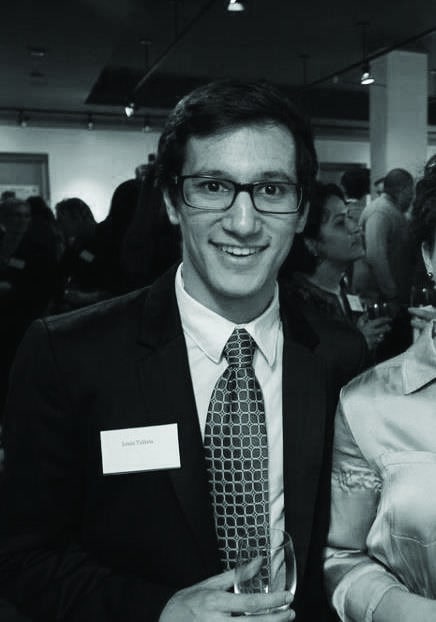
Canadians have been comparing themselves to their cousins south of the border for over a century. Americans, for an equal length of time, have been ignoring Canada while striving to create civilization-advancing innovations, preserve the individual freedoms of man, and to remake the globe in their image. While Canada is the womb that bore and the bosom that nurtured marginally talented Caucasians such as Keanu Reeves, Jim Carrey, and Justin Bieber, America is the land where their gifts were commercialized by an empire of Hollywood and Manhattan consultants and unleashed upon world society—only to have Canada remind all other counties that these people are, in fact, “from Canada”.
In carrying on the great tradition of comparing ourselves to a country that does not know who our Prime Minister is, I am going to justify why our society is a better one in which to practice law.
First off, Canadian provinces have much higher bar pass rates than U.S.states. Thanks to the supply management on the part of provincial law societies, the real barrier to entry for law in Canada–the cull of would-be lawyers–is getting into law school. In the United States, however, law schools are just as prolific as h&r Blocks— and there are several to which you can gain admission if you can spell your name and fill out some basic forms. Not only do America’s hordes of sixth-tier law school graduates (including those from schools with the name “Loyola” outside of Chicago or Los Angeles) wreck the bar pass rate; so do people without any kind of law degree. Yep, several states let you write the bar exam without a law degree, including California and Wyoming.
Second, even if there is a Canadian articling crisis (which I described in a Wright Man piece last fall), graduates of accredited law schools in America—unless you attended one of a select few schools—have it much worse. Some schools intentionally mislead or lie about their employment statistics by including figures for graduates who are under-employed. The non-profit organization Law School Transparency found that a significant majority of the “employed after graduation” figures for Santa Clara, Florida a&m, and Detroit-Mercy are actually underemployed jds working as paralegals or in non-law jobs.
Third, Canada has a much better date for Thanksgiving. We stuff ourselves with turkey, lamb, curried chicken, and pork chow mein (consider our rich, ethnic gastronomical realities by virtue of the multicultural quilt that is Canada) at a much more strategic time of year than our Fahrenheit-using friends south of the 49th; our Thanksgiving is in that perfect sweet spot between summer and Christmas. (Note: this is my weakest argument, and by sandwiching it in the middle of better arguments I hope its lack of potency will be forgiven.)
Fourth, Canadian law school tuition rates are much lower than in America. While this is not as much of an issue if you get a jd from a top American school and go on to practice at a large New York firm, under and unemployed American graduates can see their young lives crushed by compounding debt payments. American graduates wishing to practice public interest law are either prevented from doing so at the onset of their careers (and must begin work in private practice to pay off debt) or must face the Leviathan of student loan payments with a salary that cannot make ends meet.
Fifth, Canada scores better than America on a wide range of quality of life factors. While this reason is not particular to lawyers in either country, knowing that most people—and the worst off—in your country have a relatively good quality of life does make most liberal urban lawyers feel somewhat better about the world that their work serves to maintain.
Lastly, the judicial culture in our parliamentary Dominion is much more reasonable and much less partisan than that of our republican neighbour. Twenty-three American states elect judges; in eight of those judges actually run as members of political parties. Research by members of this law school’s faculty found that, in California, the most likely reason why one judge’s ruling would be overturned is if the second judge was appointed by a governor from a different political party than the one that appointed the first judge. In Canada, on the other hand, we have a Supreme Court composed of both Conservative and Liberal appointees that often makes unanimous judgments and goes against the government’s wishes.
America has a vision of rights that are inalienable such that limits on campaign spending are unconstitutional. Modern-day Justice consists of asking what the wealthy, Protestant slaveholding males who signed the Declaration of Independence would have thought of the internet had it existed in their day. Canada has a progressive Charter of Rights and Freedoms that is meant to be interpreted liberally and broadly—and which allows its freedoms to be reasonably limited. The New York Times and American Supreme Court Justice Ruth Bader Ginsburg have called our Charter the new model for rights documents and constitutions around the world, while “We the People” has lost its appeal with the people.
Canada has a more collegial legal profession, a more egalitarian and less winner-take-all approach to the legal industry, a more reasonable and progressive judiciary, and a society with a better quality of life. While you really cannot beat the cultural gems being pumped out of America (Lena Dunham’s Girls kicks off its much-anticipated season two this January), Netflix makes these products available on both sides of the border. It’s a clear win for Canada. (Oh, and Hayden Christensen is from here.)






